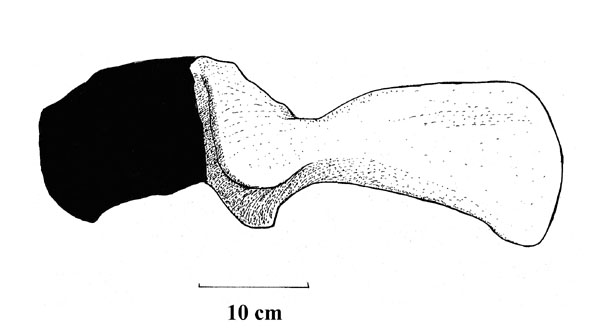
Species: ponderosus NOPCSA, 1928
Etymology: Latin, ponderosus, "heavy, weighty."
Holotype: NHMUK PV (old BMNH) R1106, 1107 (2584?)
Locality: Brighstone Bay, Isle of Wight, (From a quarry near Bolney, West Sussex County?), England, Southern United Kingdom.
Horizon: Wessex Formation (old Lower Wealden Formation).
Biostratigraphy:
Age: Late Valanginian Stage, Middle Neocomian Subepoch-Early Barremian Stage, Lower Gallic Subepoch, Early Cretaceous Epoch, Early Cretaceous.
Material: Left scapula (part of the type of Polacanthoides ponderosus, NOPCSA,
1929)
Notes: Originally referred to Hylaeosaurus by MANTELL.
Maybe a Stegosaurian?

Referred material:
BMNH 2620a: A fragmentary right scapula.
BMNH 2615: A left tibia and scapula.
Note: Originally described as a ‘humerus’ by Mantell, and a right tibia by LYDEKKER, 1888.
Lost at the Isle of Wight.Locality: Brixton Bay, Isle of Wight County, England, Southern United Kingdom.
Horizon: Wessex Formation, Wealden Group.
Biostratigraphy:
Age: Valanginian-Hauterivian Stage, Neocomian Subepoch- Barremian Stage, Lower Gallic Subepoch, Early Cretaceous Epoch, Early Cretaceous.
Material: Left humerus and left tibia..
Note: Now lost according to BLOWS, 1987.BMNH 1106: Cast of left humerus.
BMNH 1107: Cast of a left tibia.